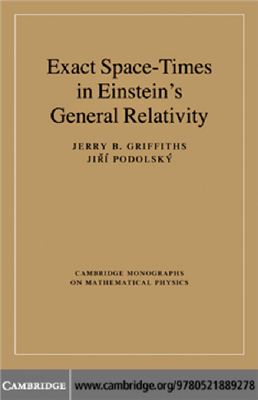Cambridge University Press, 2009, 525 pages
Einstein's theory of general relativity is a theory of gravity and, as in the earlier Newtonian theory, much can be leaed about the character of gravitation and its effects by investigating particular idealized examples. This book describes the basic solutions of Einstein's equations with a particular emphasis on what they mean, both geometrically and physically. New concepts, such as big bang and big crunch-types of singularities, different kinds of horizons and gravitational waves, are described in the context of the particular space-times in which they naturally arise. These notions are initially introduced using the most simple and symmetric cases. Various important coordinate forms of each solution are presented, thus enabling the global structure of the corresponding space-time and its other properties to be analyzed. The book is an invaluable resource both for graduate students and academic researchers working in gravitational physics.
Einstein's theory of general relativity is a theory of gravity and, as in the earlier Newtonian theory, much can be leaed about the character of gravitation and its effects by investigating particular idealized examples. This book describes the basic solutions of Einstein's equations with a particular emphasis on what they mean, both geometrically and physically. New concepts, such as big bang and big crunch-types of singularities, different kinds of horizons and gravitational waves, are described in the context of the particular space-times in which they naturally arise. These notions are initially introduced using the most simple and symmetric cases. Various important coordinate forms of each solution are presented, thus enabling the global structure of the corresponding space-time and its other properties to be analyzed. The book is an invaluable resource both for graduate students and academic researchers working in gravitational physics.

